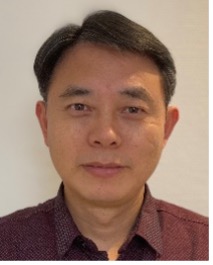Wed, 25 May, 05:00 - 06:00 UTC
Zheng-Hua Tan, Aalborg University, Denmark
Chair: Ngai-Man (Man) Cheung, Singapore University of Technology and Design

Humans learn much under supervision but even more without. Such will apply to machines. Self-supervised learning is paving the way by leveraging unlabeled data which is vastly available. In this emerging learning paradigm, deep representation models are trained by supervised learning with supervisory signals (i.e., training targets) derived automatically from unlabeled data itself. It is abundantly clear that such a learnt representation can be useful for a broad spectrum of downstream tasks.
As in supervised learning, key considerations in devising self-supervised learning methods include training targets and loss functions. The difference is that training targets for self-supervised learning are not pre-defined and greatly dependent on the choice of pretext tasks. This leads to a variety of novel training targets and their corresponding loss functions. This talk aims to provide an overview of training targets and loss functions developed in the domains of speech, vision and text. Further, we will discuss some open questions, e.g., transferability, and under-explored problems, e.g., learning across modalities. For example, the pretext tasks, and thus the training targets, can be drastically distant from the downstream tasks. This raises the questions like how transferrable the learnt representations are and how to choose training targets and representations.
Zheng-Hua Tan is a Professor in the Department of Electronic Systems and a Co-Head of the Centre for Acoustic Signal Processing Research at Aalborg University, Aalborg, Denmark. He is also a Co-Lead of the Pioneer Centre for AI, Denmark. He was a Visiting Scientist at the Computer Science and Artificial Intelligence Laboratory, MIT, Cambridge, USA, an Associate Professor at the Department of Electronic Engineering, Shanghai Jiao Tong University, Shanghai, China, and a postdoctoral fellow at the AI Laboratory, KAIST, Daejeon, Korea. His research interests are centred around deep representation learning and generally include machine learning, deep learning, speech and speaker recognition, noise-robust speech processing, and multimodal signal processing. He is the Chair of the IEEE Signal Processing Society Machine Learning for Signal Processing Technical Committee (MLSP TC). He is an Associate Editor for the IEEE/ACM TRANSACTIONS ON AUDIO, SPEECH AND LANGUAGE PROCESSING. He has served as an Associate/Guest Editor for several other journals. He was the General Chair for IEEE MLSP 2018 and a TPC Co-Chair for IEEE SLT 2016.
